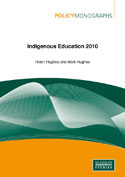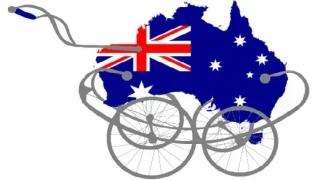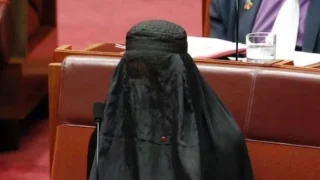
The 2009 NAPLAN results for Aboriginal and Torres Strait Islander students again show high rates of failure to meet the national minimum standards. Failure rates of 40 to 50% are common in Indigenous schools and rise to more than 70% in the Northern Territory.
If schools are ranked by NAPLAN results, almost all the bottom 150 schools in such a notional list are Indigenous schools. There are few non-Indigenous schools in this bottom grouping and only a few Indigenous schools above this grouping. About 20,000 of Australia’s 150,000 Indigenous students are enrolled in these Indigenous schools.
About 40,000 Indigenous students from welfare dependent communities attend mainstream schools. They have failure rates of more than 20% compared to non-Indigenous failure rates of less than 10%.
Some 90,000 Indigenous students attain national minimum standards. They are presumably the children of the more than 60% of Aborigines and Torres Strait Islanders who are working, owning, buying, or commercially renting their houses and paying their taxes like other Australians. They show that Indigenous education failure is not ethnic in origin.
The causes of high Indigenous education failure rates are well understood. On the supply side, lower expectations of Indigenous students have resulted in inadequate school facilities (exemplified by 45 Northern Territory Homeland Learning Centres) separate Indigenous curriculums, short school hours, and a lack of school discipline. On the demand side, cargo cult welfare dependent cultures lead to low expectations and result in low attendance.
There are positive initiatives to report. Julia Gillard, Deputy Prime Minister and Minister of Education, has made a lasting contribution by introducing NAPLAN testing and making NAPLAN results for each school available to parents and voters, thus establishing an evidence base for policies. Ms Gillard is introducing a National Curriculum with improved literacy and numeracy teaching to all Australian schools in 2011. This could be a major win for Indigenous children if the phonics approach to literacy and rigorous mathematics teaching replace current teaching practices that have led to years of failure. The Minister for Indigenous Affairs, Jenny Macklin, has begun to tackle cargo cult welfare cultures by refining and extending income management policies that initially only applied to selected communities in the Northern Territory.
Cape York Partnerships are introducing new model academies on Cape York in Queensland.
Several independent schools are delivering real education to Indigenous students, and more are planned.
Further essential education and welfare reforms include:
– Education departments should move away from the rhetoric of special programs and projects to put teachers in front of classes to teach the National Curriculum effectively. Principals should have greater autonomy to run disciplined, no excuses schools. Schools should have the same high expectations of all students.
– Effective adult literacy and numeracy classes are needed for young men and women who have left school without education. Welfare payments should be conditional on attendance in certified remedial literacy and numeracy courses in the 29 remote target townships, capital cities, and regional towns for all young men and women who cannot pass literacy and numeracy tests.
– Welfare should be reformed to cease encouraging cargo cult welfare dependence. Positive incentives should be used to encourage responsible behaviour.
– The 45 Homeland Learning Centres cannot remain as pretend schools. They are an anomaly that has no place in Australian education.
The forthcoming ministerial Indigenous Education Action Plan should include yearly targets to 2014 for schools, school regions, territories and states for reductions in the number of students failing to meet national minimum standards. By 2018, high Indigenous failure rates should be a distant memory.
Emeritus Professor Helen Hughes has worked in the economics of development for many years, including a period of senior management at the World Bank followed by membership of the United Nations Committee for Development Planning. She returned to Australia to a chair in economics at the Australian National University, where she was also the executive director of the National Centre of Development Studies. She was the Distinguished Fellow of the Economics Society of Australia in 2004. Professor Hughes is a senior fellow at the Centre for Independent Studies in Sydney, where she is working on the south Pacific as well as Aboriginal and Torres Strait Islander development.
Mark Hughes is an independent researcher.










